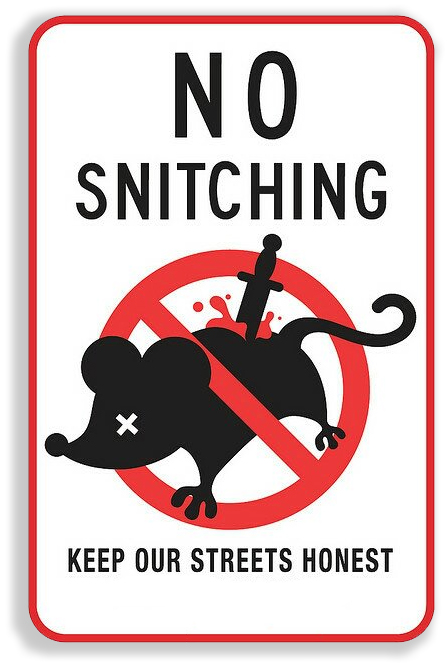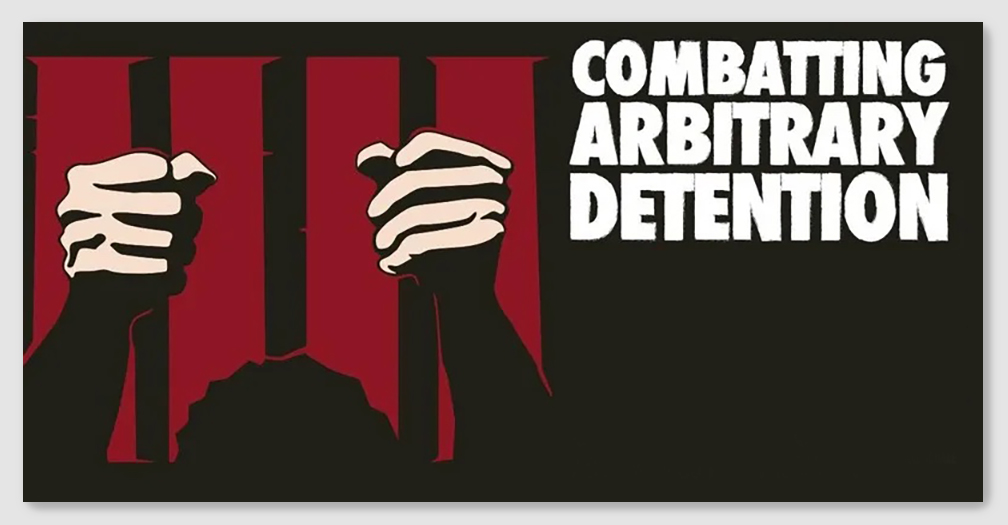We post news and comment on federal criminal justice issues, focused primarily on trial and post-conviction matters, legislative initiatives, and sentencing issues.

BOP DIRECTOR DOESN’T LACK FOR MATERIAL
 In her first video message to Bureau of Prisons staff, reported on last week in Government Executive, new Bureau of Prisons Director Colette Peters acknowledged the bumpy ride the BOP has experienced over the past few years: “We have had a great deal of scrutiny from auditing and oversight entities both internal to and external of our agency. While these findings are difficult to hear, we must work diligently to address these deficiencies in order to improve our environment for everyone who works and lives at the bureau.”
In her first video message to Bureau of Prisons staff, reported on last week in Government Executive, new Bureau of Prisons Director Colette Peters acknowledged the bumpy ride the BOP has experienced over the past few years: “We have had a great deal of scrutiny from auditing and oversight entities both internal to and external of our agency. While these findings are difficult to hear, we must work diligently to address these deficiencies in order to improve our environment for everyone who works and lives at the bureau.”
Last week suggests that Peters has no shortage of current ‘scrutiny’ to work with.
CARES Act Management: On Monday, NPR reported that only 17 of the 442 inmates returned to prison from CARES Act home confinement had committed new crimes. The number of new offenders represented less than two-tenths of a percent of the 11,000 sent home. Most of the 17 offenses were drug-related.
NPR criticized the BOP for a lack of due process and being too quick to revoke CARES Act status for insignificant infractions. With suits against the BOP over CARES Act revocation proliferating, NPR said, the agency is “considering a new federal rule to make the process more clear.”
The Hot Mess at Carswell: On Friday, the Ft. Worth Star-Telegram dropped another ticking bomb on the Director’s desk. The paper’s investigation found that FMC Carswell – the only federal medical facility for women inmates in the country – “has been plagued with systemic sexual abuse for years. The Star-Telegram spoke to 12 former and current inmates at the facility, as well as prison staff and experts familiar with the investigative process at the Bureau of Prisons, which has oversight of federal prisons. Hundreds of pages of incident reports, federal records and court documents reveal a pattern of sexual misconduct and cover-ups.”
 What’s more, the paper reported, Carswell inmates “say they are not always able to report sexual assaults due to fear of retaliation. Even when staff members report sexual assaults, Carswell upper management has at times failed to investigate misconduct, the union president at the prison said.” One Carswell staff member described the facility as “the perfect place for sexual misconduct.”
What’s more, the paper reported, Carswell inmates “say they are not always able to report sexual assaults due to fear of retaliation. Even when staff members report sexual assaults, Carswell upper management has at times failed to investigate misconduct, the union president at the prison said.” One Carswell staff member described the facility as “the perfect place for sexual misconduct.”
Finally, the newspaper reported, the BOP failed to provide victims with any mental health care to deal with trauma from the assaults. The BOP denied the claims, asserting that “every inmate and pretrial detainee in a BOP facility has daily and regular access to Health Services and Psychology Services staff.”
Lying Warden, Freezing Inmates: Meanwhile, the New York Post reported a week ago that the warden of a federal prison in California – identified by the paper as FCI Terminal Island – failed to fix a broken camera system in the lockup and kept prisoners in the cold after a heating malfunction during an unusually cold winter.”
The unidentified warden “risked the safety and security of inmates and staff” with the 2019 heating and surveillance failures at the prison near Los Angeles, according to a heavily redacted Dept of Justice Inspector General report of the probe obtained by the paper through a Freedom of Information Act request.
 Investigators also found that the warden “lacked candor” in sworn interviews with agents. The DOJ’s Public Integrity Section declined to prosecute after the investigation, according to the documents.
Investigators also found that the warden “lacked candor” in sworn interviews with agents. The DOJ’s Public Integrity Section declined to prosecute after the investigation, according to the documents.
Making Fun of Women and Blacks: A California TV station reported last week that a BOP whistleblower told the BOP Internal Affairs division earlier this month that the author of a “racist and misogynistic Instagram page” entitled “Good Verbal,” works at FCC Victorville, based on the private jokes and inside knowledge of the posts.
The page, that mocks women prisoners getting sexually assaulted at FCI Dublin, female officers sleeping their way to the top and black prisoners getting thrown into the SHU, among other posts,” included details suggesting the author was assigned to work at Victorville.
The whi stleblower asked that IA investigators identify the author, discipline that person, and shut down the page. “I refuse to work in a dangerous environment and be subjected to this type of treatment by alleged fellow staff members,” the letter to Internal Affairs read. “I am one of many people that are the targets of these nasty and highly offensive posts. It should also be noted that other institutions in various regions across the county are affected by this disgusting page. This page has the potential to turn into a national law enforcement issue.”
stleblower asked that IA investigators identify the author, discipline that person, and shut down the page. “I refuse to work in a dangerous environment and be subjected to this type of treatment by alleged fellow staff members,” the letter to Internal Affairs read. “I am one of many people that are the targets of these nasty and highly offensive posts. It should also be noted that other institutions in various regions across the county are affected by this disgusting page. This page has the potential to turn into a national law enforcement issue.”
As of August 30, “Good Verbal” remained posted on Instagram and appeared to be unrepentant, saying: “Our humor is not for everyone. This is how we deal with the horrible things we must see to earn money. We are the modern day sin eaters. We try to manage those that are unfit for society.”
Who’s the Rat? Finally, at a detention hearing last week for one of the three defendants charged with the murder four years ago of James “Whitey” Bulger, the government revealed that inmates at USP Hazelton knew in advance that Bulger was arriving on October 29, 2018. He died 12 hours later.
 NBC News called Bulger’s death “a stunning security failure for the federal prison system. The previously undisclosed revelation that USP Hazelton inmates were tipped off to Bulger’s arrival raises additional questions about the federal Bureau of Prisons’ handling of his transfer to one of the country’s most violent prisons.”
NBC News called Bulger’s death “a stunning security failure for the federal prison system. The previously undisclosed revelation that USP Hazelton inmates were tipped off to Bulger’s arrival raises additional questions about the federal Bureau of Prisons’ handling of his transfer to one of the country’s most violent prisons.”
“It’s just absurd that this happened,” a former BOP gang investigator told NBC.
A Bit of Support from a Critic: One piece of criticism the new Director received within about a day of her swearing-in four weeks ago was her decision to keep outgoing BOP Director Michael Carvajal on for a month as an advisor. Last week, Shane Fausey – national president of the National Council of Prison Locals union and a strident critic of BOP management – defended keeping Carvajal on. With an agency the size of the BOP, “you don’t just turn off the lights and say have a nice day. It requires a transitional period to understand, and I hate to use the word, ‘bureaucracy’ of the federal government,” Fausey said. “Whatever your personal feelings are with Director Carvajal, I think it’s essential for the success of Director Peters that he stay on board to kind of guide her at the beginning of her tenure.”
Government Executive, A New Director Is Bringing Hope to the Federal Prisons Agency (August 22, 2022)
NPR, Released during COVID, some people are sent back to prison with little or no warning (August 22, 2022)
Ft Worth Star-Telegram, They were sexually assaulted in prison. An overwhelmed mental health system failed to help (August 26, 2022)
Ft. Worth Star-Telegram, ‘I’m nobody to them.’ Survivors report sexual abuse by staff at Fort Worth Carswell prison (August 26, 2022)
New York Post, Warden failed to fix camera system, heat at California federal lockup: watchdog (August 22, 2022)
KTVU-TV, Whistleblower outs racist, misogynistic Instagram page at California federal prison (August 24, 2022)
NBC, Twist in Whitey Bulger murder case: Inmates at West Virginia prison knew in advance he was coming (August 23, 2022)
– Thomas L. Root

























